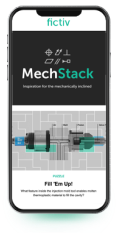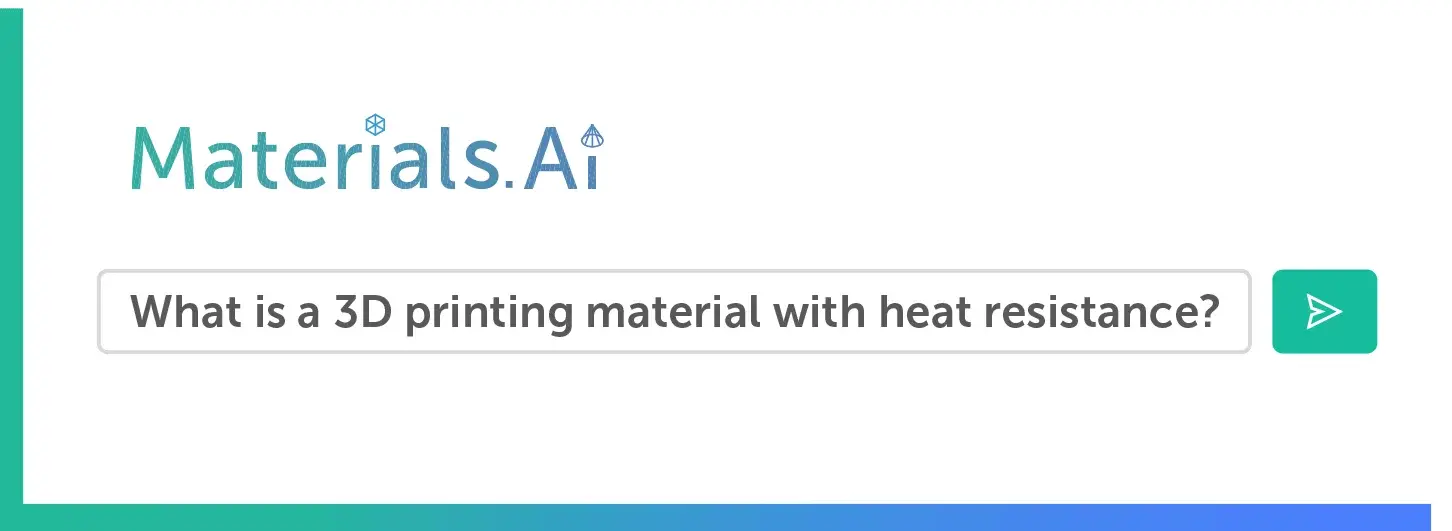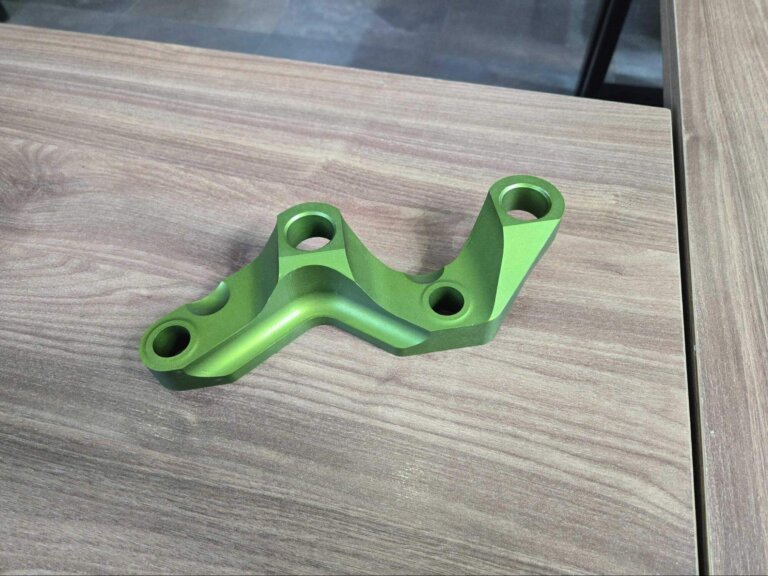Time to read: 5 min
How Fictiv’s Injection Molding Services Can Help Aerospace Prepare for Takeoff

In the aerospace industry, standards are high. If one part fails, it could have dire consequences. Even non-flight-critical parts need to meet rigorous quality control criteria. This means panels, housings, interior and exterior trim, ducting, trays and other components need to be manufactured exactly to spec using engineering-grade materials that can deliver flight-ready performance — and fast. That’s where injection molding can offer the advantage.
A crucial step in the prototyping of non-critical aerospace parts, injection molding is a method that heats and injects plastic material under pressure into a closed metal mold. The molten plastic is then cooled until it hardens into the desired shape — which can vary in size, volume and complexity.
It is important to note, though, that not all injection molding manufacturers are structured to deliver complex, tightly toleranced parts in a short timeframe. That’s why many aerospace companies turn to Fictiv.
Testing Tolerances Through Prototyping
In aerospace, once an aircraft is in flight, you can’t go fix it. That’s why it’s important to understand the most critical components of your part design before moving into production. But understanding mechanical structure on paper and in CAD is not often enough, requiring the testing of physical prototypes.
Prototypes of various aircraft components can be injection molded in low volumes using specific engineering-grade materials. This gives aerospace engineers opportunities to run a series of tests to validate designs and determine which material will ultimately meet performance requirements.
Offering the option to use low-cost, quick-cooling aluminum tooling for short runs of prototype parts, Fictiv’s injection molding services are a great solution for rapid prototyping. You can have finished prototypes of varying complexity ready for testing quickly.
Fictiv’s streamlined digital infrastructure also helps speed up the design, development of aircraft components — helping aerospace engineers meet specifications without making sacrifices to development timelines or costs. Fictiv also provides automated and human-supported technical DFM feedback. This service allows you to detect and remedy part manufacturability issues early in the development process, helping you avoid costly roadblocks, optimize designs and pick up efficiencies along the way.

Delivering Complex Geometries with Precision
Parts manufactured for aerospace applications are typically designed for a very specific use. As a result, some parts end up having exceptionally complex geometries — which can make repeatable precision a difficult thing to achieve. Combining computer-aided design with quality injection mold tools, injection molding makes it possible to develop aircraft parts with intricate details and achieve complex geometries in a repeatable fashion.
To further ensure repeatability and the delivery of the highest-quality parts, Fictiv offers a wide range of injection mold manufacturing options with rigorous quality management systems and inspection protocols in place. Additionally, one of Fictiv’s quality engineers will conduct quality assessments of your parts and deliver transparent inspection documentation to ensure all requirements are being met according to your Specifications.
Offering Materials and Processes for Aircraft Applications
Once you know the most critical components of your design and what you’re optimizing for, finding the materials that maximize those properties is crucial to the success of your part. In aerospace, performance properties like thermal and flame resistance, chemical resistance and electrical shielding are at the top of the list. To help create parts that can meet these performance requirements, Fictiv provides a large range of high-performance injection molding materials, including engineering-grade plastics, thermoplastics and specialty plastics.
Fictiv also offers overmolding and compression molding services. Overmolding expands on the benefits of injection molding by allowing you to manufacture intricate parts and assemblies from two or more materials in a short amount of time. This means you can achieve quick-turn parts with superior strength and performance properties — such as thermal resistance — that may be better suited for more demanding aerospace industry applications.
With overmolding, rigid plastic materials can also be encompassed in a soft elastomeric rubber material to create parts with enhanced electrical resistance or sealing properties. And in some cases, it can help lower cost per part by eliminating the need for connectors, O-rings and other rubberized pieces and associated part assembly labor.
Compression molding on the other hand, can be used to create silicone seals, gaskets for cabin doors and windows, and other flexible parts. It is a low-cost molding process that’s ideal for larger-volume manufacturing applications and can support a wide variety of part shapes, sizes and wall thicknesses. Silicone, EPDM and natural rubber are just a few of the compression molding materials that can be used in this process.
Secondary processes like machining, surface finishing and heat staking — the process of locally heating a plastic component to reform and insert another component (such as a threaded metal insert) — are also options for injection molded parts.

A Thoroughly Vetted Network of Manufacturing Options
Aircraft are not produced in the same quantity as consumer products or electronics, which means most aerospace components are not mass-produced. Airplanes, helicopters and other aircraft require many different parts, but they only need a few hundred or fewer of any given part. This is referred to as high-mix, low-quantity production.
Many manufacturers avoid high-mix, low-quantity jobs because they are deemed to be less efficient and cost-effective on their end — especially when dealing with complex geometries. However, Fictiv may be able to connect you with injection molding manufacturers who can assist you, depending on the regulatory requirements of your project(s).

Thanks to a carefully selected network of domestic and global manufacturing partners, Fictiv is fully equipped to offer numerous types of injection molding services for all types of non-flight-critical applications. Manufacturing partners are thoroughly vetted by Fictiv and are required to complete a detailed onboarding process, and maintain high performance while serving as a Manufacturing Partner.
Bringing Flexibility to the Injection Molding Process
Having the flexibility to innovate and iterate without constraints is essential in aerospace. From prototype to final production (depending on the regulatory requirements of your project), Fictiv provides access to a range of injection molding services and materials to help you engineer precision, to-spec aerospace components with fast and repeatable results.
Request Your Free Quote
If you’re ready to join the 2,500+ companies who use Fictiv for high-quality parts, visit fictiv.com/signup to request a free quote.
Disclaimer: The information provided by Fictiv Inc. on Fictiv.com (the “Site”) is for general informational purposes only. All information on the Site is provided in good faith, however Fictiv makes no representation or warranty of any kind, express or implied, about the accuracy, adequacy, validity, reliability, availability, or completion of any information on the site. UNDER NO CIRCUMSTANCE SHALL WE HAVE ANY LIABILITY TO YOU FOR ANY LOSS OR DAMAGE INCURRED AS A RESULT OF THE USE OF THE SITE OR RELIANCE ON ANY INFORMATION PROVIDED ON THE SITE. YOUR USE OF THE SITE AND YOUR RELIANCE ON ANY INFORMATION ON THE SITE IS SOLELY AT YOUR OWN RISK.
If you have questions about fictiv’s capabilities to support your manufacturing project, please reach out directly to your account manager. Any and all use of Fictiv’s services must comply with the terms of use found at fictiv.com/terms.










